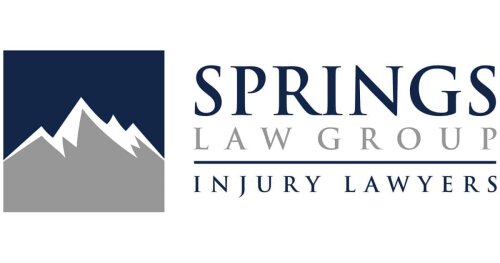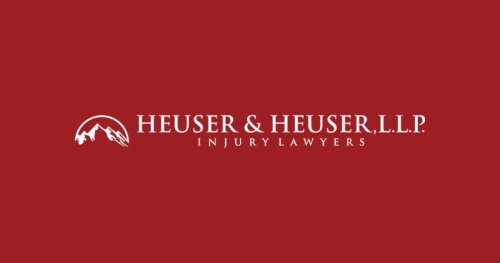Best Ethics and Professional Responsibility Lawyers in Colorado
Share your needs with us, get contacted by law firms.
Free. Takes 2 min.
Or refine your search by selecting a city:
List of the best lawyers in Colorado, United States

About Ethics and Professional Responsibility Law in Colorado, United States
Ethics and professional responsibility law in Colorado governs the standards of conduct for professionals, particularly attorneys, to ensure the integrity of legal practice and to protect the interests of clients and the public. This field of law encompasses rules, regulations, and guidelines that dictate how lawyers must conduct themselves in their professional roles. These rules are established by local and national bodies such as the Colorado Rules of Professional Conduct, and violations can result in disciplinary actions including suspension or disbarment. Understanding these regulations is critical both for legal professionals and individuals seeking representation.
Why You May Need a Lawyer
People may require legal advice or representation in ethics and professional responsibility matters for a variety of reasons. Common situations include facing allegations of unethical behavior, dealing with client complaints, navigating conflicts of interest, or complying with the obligations of confidentiality and candor. Law firms and individual lawyers may seek guidance to avoid breaches that could lead to disciplinary actions. Clients may also need legal counsel if they believe an attorney has acted improperly or if they wish to file a grievance. Whether you are a legal practitioner or a client, consulting an ethics attorney can help clarify rights, obligations, and the best course of action.
Local Laws Overview
In Colorado, the Supreme Court of Colorado is the ultimate authority on attorney discipline and the enforcement of professional responsibility standards. The principal set of regulations is the Colorado Rules of Professional Conduct, which set forth duties regarding client relationships, fees, conflicts of interest, confidentiality, competence, honesty, and more. The Office of Attorney Regulation Counsel (OARC) administers attorney licensing and investigates complaints against attorneys. Violations can lead to a range of consequences from informal admonitions to permanent disbarment. Other professionals, such as accountants and real estate agents, are also regulated by state licensing boards with their own ethical codes and disciplinary processes.
Frequently Asked Questions
What is the Colorado Rules of Professional Conduct?
The Colorado Rules of Professional Conduct are a set of rules governing the ethical and professional standards lawyers must adhere to in the state. They cover everything from client communication to conflicts of interest.
How are complaints against lawyers handled in Colorado?
Complaints are filed with the Colorado Office of Attorney Regulation Counsel, which investigates the allegations. If necessary, the case may proceed to a disciplinary hearing before possible sanctions are imposed.
What types of conduct could get a lawyer disciplined in Colorado?
Misappropriation of client funds, breach of confidentiality, conflicts of interest, dishonesty, failure to communicate, and incompetence are common grounds for discipline.
Can non-clients file complaints regarding attorney misconduct?
Yes, anyone who believes an attorney has violated ethical rules can file a grievance with the Office of Attorney Regulation Counsel, regardless of whether they were the attorney's client.
Are ethics rules only applicable to lawyers?
While the Colorado Rules of Professional Conduct specifically regulate lawyers, many other professions in the state have their own ethical codes and disciplinary authorities.
How are conflicts of interest handled by Colorado lawyers?
Lawyers must avoid representing clients when there is a significant risk that their representation will be materially limited by personal interests or obligations to another client, unless all parties give informed consent in writing.
What should I do if I believe my lawyer behaved unethically?
You can file a formal grievance with the Colorado Office of Attorney Regulation Counsel. They will review the complaint and determine the appropriate action.
What are possible outcomes of an ethics investigation?
Outcomes range from dismissal of the complaint, private admonition, public censure, suspension, or disbarment of the attorney involved.
Do lawyers in Colorado have mandatory continuing legal education in ethics?
Yes, lawyers must complete continuing legal education credits, a portion of which must focus on ethics and professional responsibility.
Can I appeal a decision about attorney discipline?
Yes, there are appellate procedures in place. Decisions may be appealed to higher authorities within the Colorado Supreme Court system.
Additional Resources
- Colorado Supreme Court Office of Attorney Regulation Counsel: Handles attorney registration, complaints, and discipline. - Colorado Bar Association Ethics Committee: Provides informal ethics opinions and guidance to members. - Colorado Judicial Branch: Oversees attorney discipline matters and manages public records about decisions. - State Licensing Boards (for non-law professions): Issue and enforce ethics rules for other licensed professionals. - ABA Center for Professional Responsibility: Offers national resources on rules and trends in legal ethics. - Local Law Libraries: Can provide access to statutes, case law, and ethics opinions.
Next Steps
If you need legal assistance in the area of ethics and professional responsibility in Colorado, start by identifying the specific issue or question you have. Gather all relevant documentation and communications. For concerns about a specific attorney or professional, contact the appropriate regulatory office, such as the Colorado Office of Attorney Regulation Counsel. If you are a professional seeking advice, consult with an experienced ethics attorney or request an informal opinion from your association's ethics committee. For both clients and professionals, it is usually wise to seek an in-person consultation with a lawyer specializing in ethics and professional responsibility to discuss your situation confidentially and receive tailored advice.
Lawzana helps you find the best lawyers and law firms in Colorado through a curated and pre-screened list of qualified legal professionals. Our platform offers rankings and detailed profiles of attorneys and law firms, allowing you to compare based on practice areas, including Ethics and Professional Responsibility, experience, and client feedback.
Each profile includes a description of the firm's areas of practice, client reviews, team members and partners, year of establishment, spoken languages, office locations, contact information, social media presence, and any published articles or resources. Most firms on our platform speak English and are experienced in both local and international legal matters.
Get a quote from top-rated law firms in Colorado, United States — quickly, securely, and without unnecessary hassle.
Disclaimer:
The information provided on this page is for general informational purposes only and does not constitute legal advice. While we strive to ensure the accuracy and relevance of the content, legal information may change over time, and interpretations of the law can vary. You should always consult with a qualified legal professional for advice specific to your situation.
We disclaim all liability for actions taken or not taken based on the content of this page. If you believe any information is incorrect or outdated, please contact us, and we will review and update it where appropriate.
Browse ethics and professional responsibility law firms by city in Colorado
Refine your search by selecting a city.










